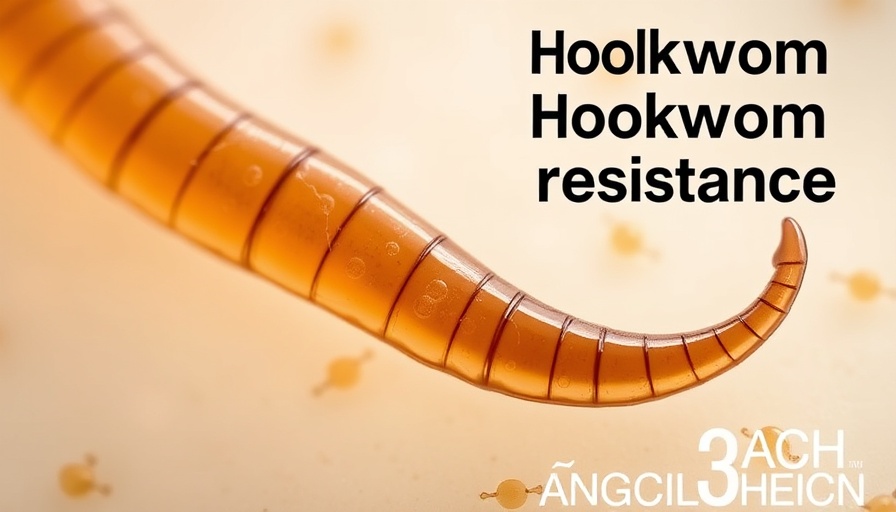
Understanding Hookworm Resistance in Pets
As veterinary professionals increasingly face the challenge of persistent hookworm infestations in dogs, one burning question remains: Are these hookworms developing resistance to commonly used dewormers? A recent inquiry from a fellow veterinarian reflects the growing frustration within the field as they continually administer treatments without success.
The Rise of Antimicrobial Resistance
The phenomenon of antimicrobial resistance is not limited to human medicine; it increasingly affects veterinary practices. A key factor driving resistance is the overuse and misuse of anthelmintics. In veterinary settings, a lack of adherence to treatment protocols and inappropriate dosing can contribute to the development of drug-resistant parasites. This reality compels practitioners to remain vigilant and to question the effectiveness of traditional treatments.
Investigating Treatment Protocols
Veterinarians should evaluate their deworming protocols critically. It's essential to ensure that treatments are not merely routine but tailored to the diagnostic needs of the patient. Regular fecal examinations, coupled with strategic deworming schedules, can help pinpoint resistance trends while ensuring effective patient management.
Alternative Treatments: What Are Our Options?
When conventional treatments fall short, exploring alternative therapies is crucial. Medications such as milbemycin oxime and moxidectin may offer benefits against resistant hookworms. Additionally, consider integrating fecal flotation techniques alongside treatment. This helps confirm the presence of hookworms and informs future deworming strategies.
The Role of Environmental Management in Prevention
In tackling hookworm resistance, it is vital to address the environmental factors that contribute to the lifecycle of these parasites. Ensuring proper sanitation in kennels and homes can significantly minimize the risk of reinfestation. Educating pet owners about the life cycle of hookworms will also empower them to take preventive measures.
Promoting Awareness Among Clients
Veterinary clinics must take an active role in educating clients about the challenges of parasite resistance. Initiatives aimed at raising awareness on the importance of regular veterinary checks, responsible pet ownership, and understanding the implications of resistant parasites can significantly influence treatment success rates.
The Future of Parasitology in Veterinary Medicine
As we move forward, recognizing trends and emerging resistances will guide veterinarians in evolving their practices. Keeping abreast of new research on parasitic diseases, including studies on hookworm resistance, may offer insights into innovative treatment options. Collaboration with parasitologists will also enhance veterinary knowledge and approaches.
In conclusion, the fight against hookworm resistance necessitates a multifaceted approach, one that encompasses effective treatment protocols, robust environmental management, and ongoing education for both veterinary professionals and pet owners. By taking these steps, we stand a better chance of managing and ultimately overcoming these resilient parasites.
 Add Row
Add Row  Add
Add 




Write A Comment